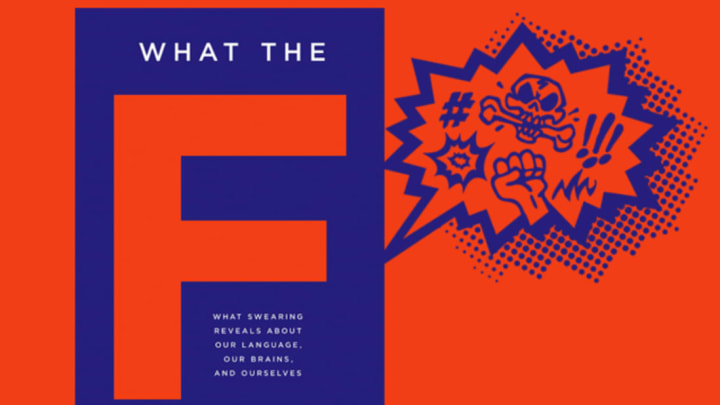Taboo language has always commanded attention, but it hasn't always been a subject of academic attention. Fortunately, that has changed. All aspects of language have the potential to reveal important facts about who we are and how our minds work, so there should be no taboo on the study of the taboo. A new book by cognitive psychologist Benjamin K. Bergen delves into the profane side of language to reveal a host of interesting and entertaining things you might not realize about our relationship with naughty words. Here are just five surprising facts about swearing from What the F: What Swearing Reveals About Our Language, Our Brains, and Ourselves.
1. SOME LANGUAGES DON’T HAVE SWEAR WORDS.
Bergen notes that although Japanese has ways to express the functions of swearing (whether insulting others or simply intensifying statements) as well as words for the sexual and scatological, it lacks a particular group of words that can be classified as swear words in the sense that other languages have. This is why baseball player Ichiro Suzuki, who learned English and Spanish during his Major League career, said in an interview that he likes how “the Western languages allow me to say things I otherwise can’t.”
2. THERE IS A SPECIFIC PROTOTYPE FORM FOR THE IDEAL ENGLISH SWEAR.
Is a typical “four letter word” really four letters? Bergen performed various studies to see if there were consistent patterns in the form of English profanities, and uncovered some strong tendencies. Swear words are more likely to be four or eight letters compared to the rest of the vocabulary, but their sound characteristics might be more important than their spelling. Swears also tend to be one syllable, and to be a closed syllable, meaning ending in a consonant rather than a vowel. So pee and poo, open syllables, don’t fit the mold as … their counterparts that end in consonants.
3. THE WORD ROOSTER WAS INVENTED TO AVOID COCK.
The names for animals in English are some of the oldest, but rooster is relatively new, appearing at the end of the 18th century as a term for a male fowl, one who “roosts.” For centuries before that, cock was the word for this animal. But as cock became more and more used as a term for the male sexual organ, it became more and more awkward to use it as a term for the animal. So a new word took its place in this capacity.
4. THERE’S A SWEARING DISORDER CALLED COPROLALIA.
One of the symptoms of Tourette’s syndrome is the uncontrollable urge to use profane language. Brain research shows it may have to do with the representation of certain words being more closely connected to emotional centers in the brain. Coprolalia comes from the Greek kopros, for feces.
5. SWEARS OPERATE BY DIFFERENT GRAMMAR RULES.
A profane phrase like “I don’t give a damn” (or similar phrases with other swears swapped in for damn) doesn’t operate according to the usual rules for the verb give, which normally has a recipient, even if it’s unstated. A set phrase like “I gave at the office” can be modified to “I gave (money to the cause) at the office,” but “I don’t give a damn” doesn’t get a recipient, making “I don’t give (you) a damn” ungrammatical. Similar grammatical oddities happen for phrases like “damn you,” “you don’t know squat” and “my ass!”
Learn more about curse words and how they really work (in a way your teacher will approve of) in What the F.
